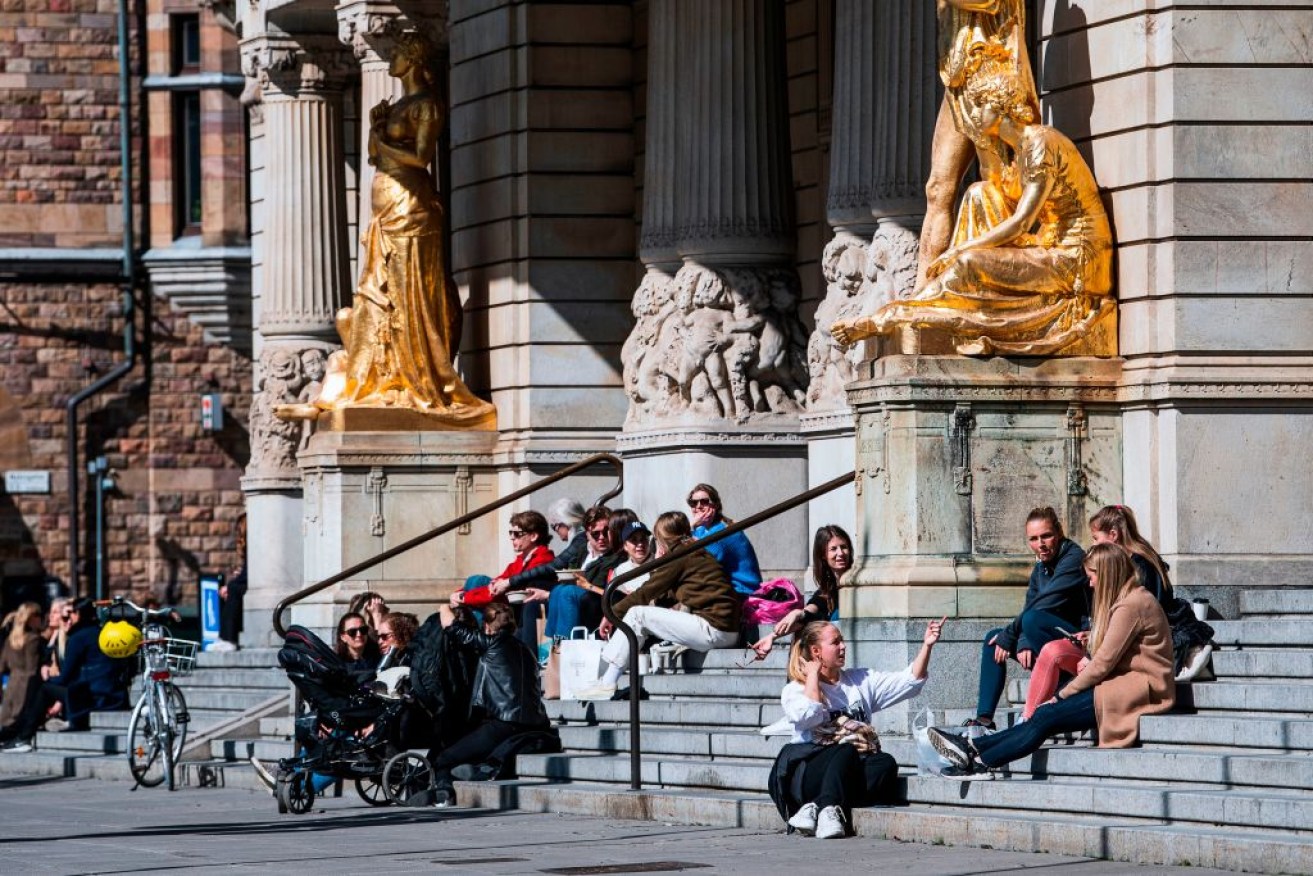WHO says we must not live in hope of coronavirus herd immunity

Sweden is one of the few countries to have aimed for herd immunity against the coronavirus.
Global immunity to COVID-19 is “nowhere close” to levels needed to contain the pandemic, according to the World Health Organisation.
Almost 22 million people have contracted the coronavirus, including almost 800,000 who have died from the associated disease.
With lockdown measures proving economically disastrous, some politicians have pinned their hopes to natural herd immunity, which results in a virus fizzling out once a large-enough portion of a population becomes immune after recovering from a disease.
But even as sufferers recover in their thousands, WHO Health Emergencies Programme executive director Michael Ryan is warning herd immunity will not be “our salvation”.
“Right now, as a planet, as a global population, we are nowhere close to the levels of immunity required to stop this disease transmitting,” he said.
“We need to focus on what we can do now to stop transmission and not live in hope of herd immunity being our salvation.
“That is not a solution and it is not a solution we should be looking to.”
Early in the outbreak, officials, including some in Britain, Sweden and the Netherlands, floated natural herd immunity as a possible policy to deal with COVID-19.
The idea was quickly dismissed by health experts, but the prospect of letting the disease run its course proved stubborn as the pandemic dragged on and the economic fallout grew.
Herd immunity achieved only with vaccine
But herd immunity cannot be achieved by natural infection, according to University of Brighton microbiologist Sarah Pitt.
She used the example of measles, which can, on average, be passed to 15 people by one sufferer.
Despite the high infection rate and lifetime immunity in those who recover, the disease was common in humans for centuries until a vaccine was developed.
The race for a vaccine has also become the key factor in making herd immunity a reality for COVID-19.
More than 160 potential vaccines are in various stages of development around the world. Australia has secured access to one of the frontrunners, which is being developed in Britain.








